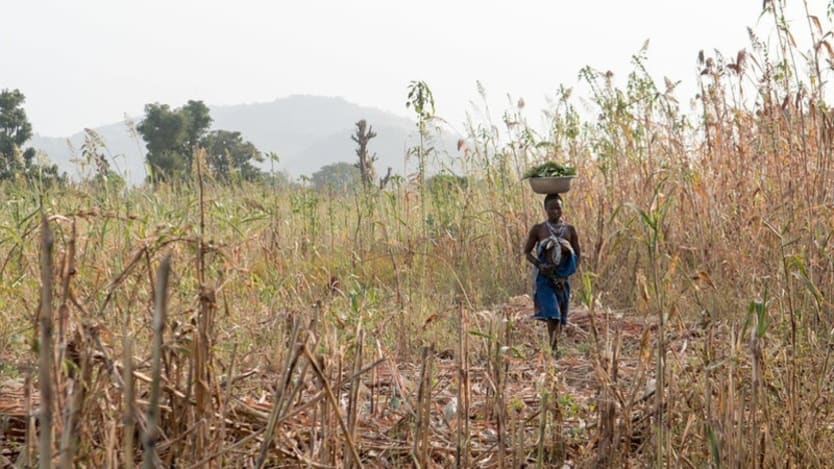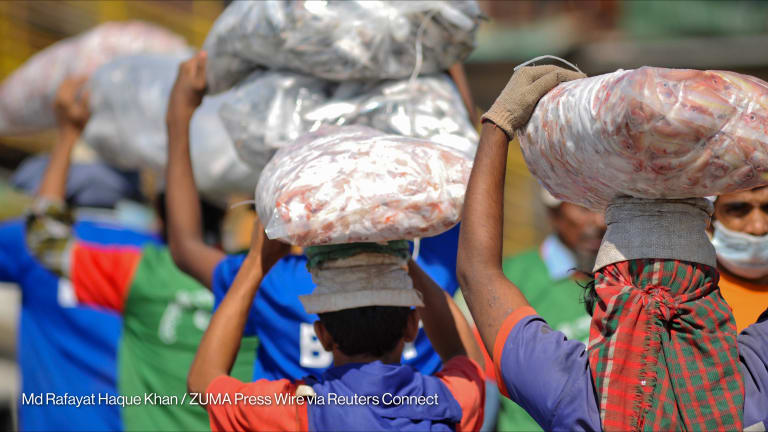
The recent #EndSARS protests against police brutality in Nigeria led to the discovery and mass looting of warehouses filled with food items meant to ameliorate food insecurity in the nation. The mismanagement of the food palliatives for coronavirus-induced food insecurity hampered equitable distribution among vulnerable populations.
The looting also reveals Nigeria’s pervasive poverty and food insecurity. In addition, many Nigerians have justified the looting of the warehouses, citing the mismanagement of the palliatives. The solution to the dilemma of food insecurity is contingent upon the recognition of its causes and implementation of comprehensive recommendations.
Food insecurity in Nigeria is continuously being aggravated by myriad factors, including communal conflicts and, most recently, the COVID-19 pandemic. The presence of militant groups like Boko Haram, in addition to violent clashes between herders and farmers, has further compounded the problem.
The country’s food insecurity and resulting malnutrition can also be attributed to poor funding for sustainable policies, limited mechanized farming, poor rural development, and prohibitive practices that disenfranchise women farmers. About 9 out of 10 Nigerians cannot afford a healthy diet. Nigeria has the second-highest burden of stunted children across the globe, and millions of children suffer from acute malnutrition. The COVID-19 pandemic has worsened the hunger situation, particularly impacting food supply and prices.
First, the Nigerian agricultural sector is chronically underfunded. The oil boom of the 1970s made Nigeria heavily dependent on oil revenue and caused the neglect of the agricultural sector. Since then, several agricultural schemes — such as Operation Feed the Nation and agricultural development projects — have been launched with limited sustainable impact.
Furthermore, Nigeria’s changing governments lack policy continuity, resulting in frequent programmatic changes around food security and agriculture and thereby impacting sustainable food production and distribution.
Reducing Nigeria’s food insecurity demands a concerted effort from the government and private sectors working together.
—Second, factors such as poor infrastructure, limited rural development, credit, land, and labor place women and rural farmers at a disadvantage in agricultural productivity. According to reports, male plot managers in Nigeria are more likely to purchase land, have irrigated land, and own larger and valuable livestock, and they earn an average income that is five times higher than female managers.
Female farmers have limited access to labor, as they are less likely to hire outside labor or use family labor. Also, women are not often involved in cash crops such as cocoa, rubber, and cotton.
To improve this situation, the Nigerian government must consider evidence-based policies and programs, taking lessons from interventions and other countries that have been successful. These include:
• Increasing the federal allocation for agriculture and rural development from 3% or less to at least 10% of the national budget, as specified in the 2003 Maputo Declaration. Furthermore, the Nigerian government can implement an institutional framework across stakeholders to support subsidies, credit financing, and insurance for small and rural farmers.
• Improving the monitoring and evaluation of governmental programs. The government should consider data-driven approaches in allocating funds to areas of need, such as rural development, mechanized farming, women farmer empowerment, and increased credit for smallholder farmers.
• Promoting mechanized farming. Around 90% of Nigerian farmers use manual farming methods, while only 3% of farmers use mechanized farming. Increasing mechanized farming in Nigeria will aid agricultural productivity, thus reducing food insecurity.
• Supporting initiatives that empower rural women farmers — from leasing lands to women where cultural norms prohibit land ownership to promoting women’s access to lending. For instance, the Rural Women Striding Forward project in Burkina Faso, Kenya, and Uganda showed flexible funding and technical support for its participants. This project documented improved agricultural productivity, a 30% increase in women’s income, and improved nutrition for most households.
• Implementing an integrated security plan specifically designed for the agricultural sector and its actors. It will be beneficial for the government to deploy appropriate conflict prevention strategies, like mediation, disarmament, demobilization, and reintegration, as well as community violence reduction programs, to convert conflict perpetrators into civil and economically productive citizens. These approaches will ensure increased economic productivity from agriculture, better access to food, and a framework for sustained national peace.
While the Nigerian government holds the primary responsibility to solve the food insecurity problem, a sustainable solution will require private sector engagement and regional partnerships with other African states. Reducing Nigeria’s food insecurity demands a concerted effort from the government and private sectors working together to ensure peace, promote mechanized farming, support and empower women and rural farmers, and provide comprehensive financial support.
Learning from the fallout of the #EndSARS protests, these policy recommendations must be executed with utmost transparency and accountability, with regular evaluations to ensure the integrity of the initiatives.










